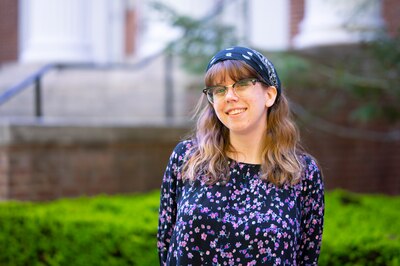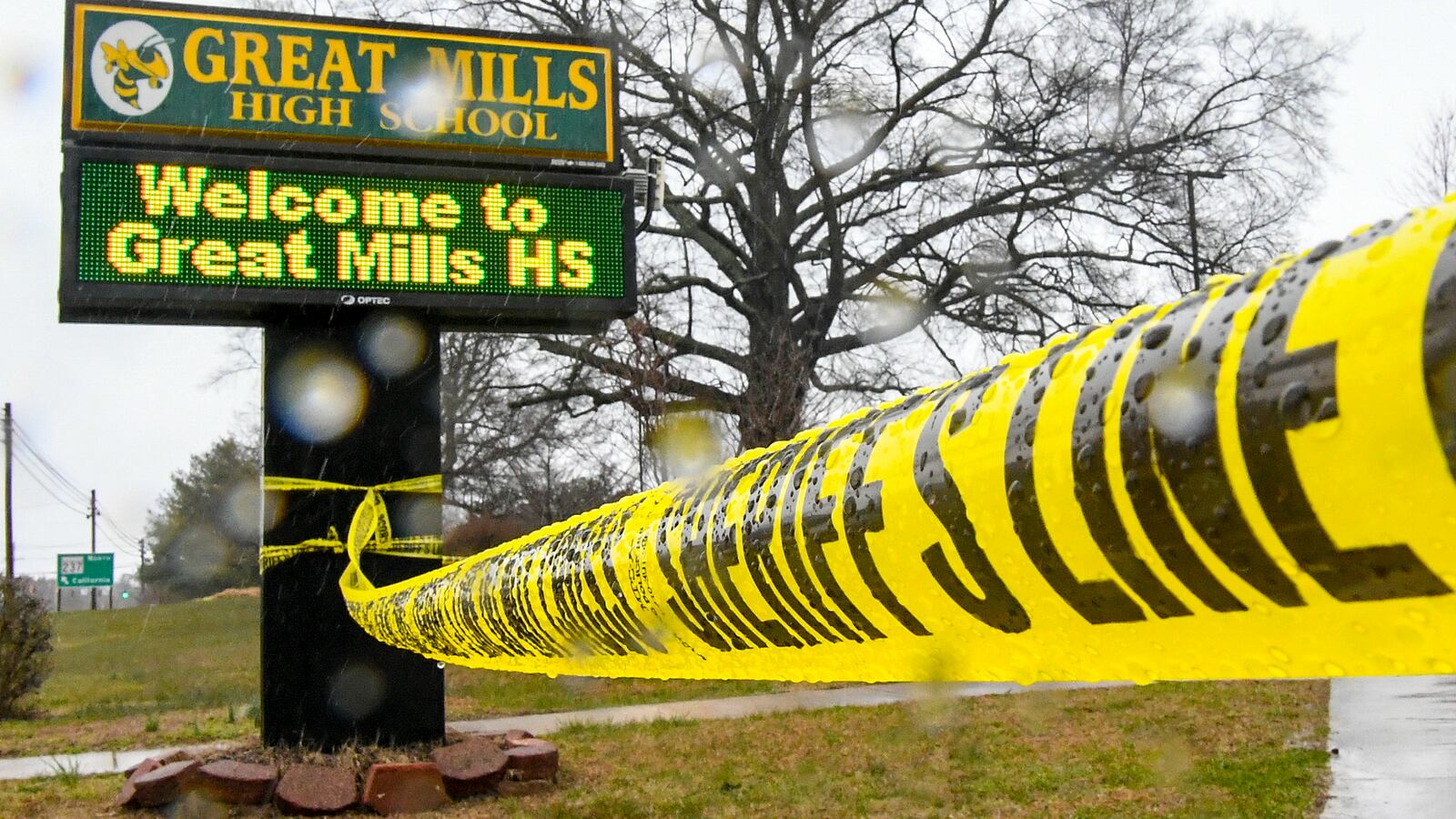“It wasn’t a school shooting,” my Algebra 3 teacher said nonchalantly as he passed around the bag of “Great Mills Strong” bracelets someone had donated to us. “It was just a shooting in a school.”
His words sounded ridiculous to me, but this was a sentiment shared by many in and beyond our community.

Two weeks earlier, 16-year-old Jaelynn Willey was shot dead by her 17-year-old ex-boyfriend on a Tuesday morning inside Great Mills High School, where in 2018 I was a senior. The boy died, too, of a self-inflicted gunshot wound, as the school’s student resource officer responded to the incident.
But all this happened a month after the massacre at a high school in Parkland, Florida, where 17 were killed. What happened at our school seemed minuscule by contrast. The gun-control advocates forgot us and the gun-rights advocates pushed out a video claiming us as a victory for the side of “good guys with guns.” Never mind that the events of that rainy Tuesday morning left Jaelynn dead and traumatized us Great Mills students. Meanwhile, we were told that what we experienced wasn’t really a “school shooting,” so we were fearful of being seen as dramatic. The message: Be grateful that it wasn’t worse.
If I was testifying under oath, I’d have to say I’m not sure if I heard the gunshot. The doors of our school slammed loudly by default, people dropped things, and I think I may have heard it without recognizing what it was. Either way, what alerted me that something was wrong was the screaming. There was screaming and my head turned to a boy running past the open door of our classroom in black basketball shorts with a white stripe up the side. Two of my classmates went to the stair landing to see if they could see what was going on. They came back inside reporting that people were screaming someone had a gun, and sat back down.
We all sat at our desks with the lights on, the screaming reverberating off of the walls below us. Someone said their friend told them that someone popped a balloon behind a girl’s head and told her to drop. What a jerk, he’s in trouble, my mother texted when I relayed that information to her. I chuckled as my hands shook and the intercom crackled to life. Something about how there was no immediate threat but to go on lockdown.
I tweeted a plea for prayer that went viral; when CNN asked if I was available, I turned them down. But they found someone who said yes, someone who went on national television and said seven people were dead.
I tweeted a plea for prayer that went viral.
Thankfully that wasn’t true. Thankfully, only one girl was shot in the head; thankfully, the bullet that went through her head only hit someone else in the leg; thankfully, the only other casualty was the shooter. The word “thankfully” has been rotting on my tongue for the past five years, but I can’t spit it out because that would be rude to the people who worked overtime to make it palatable.
The shooting took place around 7:55 a.m., and I didn’t leave the reunification center until close to 4 p.m. As we pulled out of the parking lot, my chest started hurting so bad I couldn’t sit up. So I hunched into a ball in my dad’s passenger seat until we got home and I stumbled into the house to hug my mom. I forced myself up the stairs and into the bathroom before I collapsed, my eyes falling to the piece of white masking tape on my sleeve. We all got one when checking into the reunification center for reasons that I’ve never understood. Ripping it off, I slammed it against the wall and turned the water on so my family wouldn’t hear me as I let out an earnest sob from the depths of my being. I crawled into the shower, curled up in a ball, and willed myself to wake up from what was surely just a vivid nightmare.
But it wasn’t a nightmare, and the short list of dead and injured wasn’t some “get out of trauma free” card for me or my peers.
Smaller school shootings get lost in the shuffle of too-frequent violence with higher death tolls. You can tell me to be thankful that it wasn’t worse. But what happened at my school five years ago remains an open wound.
Mollie Davis is a 23-year-old writer residing in Denver with the Colorado Episcopal Service Corps. In the fall, Davis will be a 1L.



